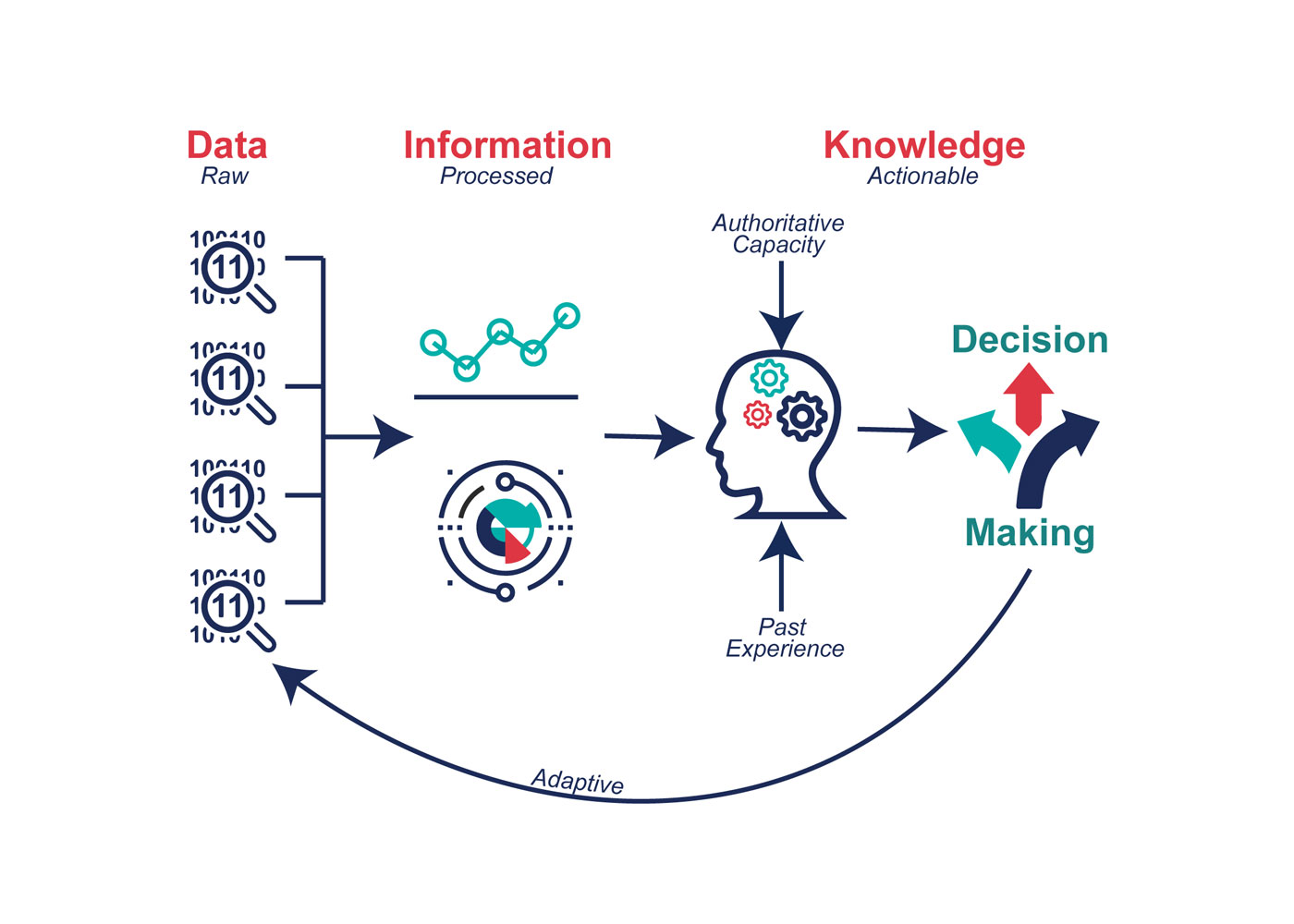A programming certification is a credential that verifies an individual™s proficiency in various aspects of software development. It proves the holder has acquired the necessary knowledge and skills to be successful in their chosen field. Earning a programming certification can give professionals greater credibility, job opportunities, business connections, and more. It also provides employers with assurance that they are hiring someone who is knowledgeable about the latest trends and technologies in computer programming. With a certified programmer on board, organizations can rest assured knowing they have access to the highest quality of expertise available. Furthermore, having a programming certification increases your marketability as an employee or consultant since it demonstrates your commitment to excellence and professionalism within the industry.
Logical Problem Solving
Logical problem solving is an essential skill for any programmer or computer scientist. It involves the ability to think through a problem and come up with the best possible solution in a systematic way. This includes understanding the underlying principles of programming as well as being able to identify patterns and correlations that can be used to find solutions. Logical problem solving also requires creative thinking when it comes to approaching problems from different angles. A good programmer should be able to recognize potential pitfalls and work around them in order to develop efficient software programs. Additionally, logical problem solving involves having superior troubleshooting skills so that if something doesn™t work, you can quickly locate the source of the issue and correct it accordingly. Ultimately, this skill helps ensure that programs are running properly and efficiently without any glitches or bugs.

Programming Languages
In order to be proficient in programming, it is essential to learn several different programming languages. A good programmer should have a solid foundation of knowledge in at least one language, but having experience with more than one can give them an advantage when seeking employment or working on complex projects. Learning various programming languages will help broaden the professional™s understanding of computer science and open up new opportunities for them. It also allows the programmer to work on different platforms and develop programs that are compatible with multiple operating systems.
Being able to write code using different programming languages is another key skill for any programmer or software developer. Writing code involves taking instructions from a program and translating them into a format that the computer can understand and execute properly. This requires familiarity with syntax rules as well as coding conventions that are used across all programming languages. Additionally, writing efficient code involves understanding how data structures work so that functions run quickly without consuming too many resources from the system. Lastly, being able to debug code by locating errors and fixing them quickly is also important since this prevents further issues down the line when executing programs written in various coding languages
Debugging and Troubleshooting
Debugging and troubleshooting are essential skills for any programmer or software developer because they help ensure that programs run smoothly and efficiently. Debugging involves locating errors in a program™s code, such as incorrect syntax or missing variables, and making the necessary changes to correct them. This requires an understanding of coding conventions so that mistakes do not go unnoticed when debugging a program. Additionally, it is important to be able to identify common programming errors so that they can be addressed quickly without having to search through hundreds of lines of code.
When troubleshooting programming errors, it is important to have an analytical approach in order to locate the source of the issue more quickly. This includes being able to think logically by breaking down complex problems into smaller sections in order to determine what may be causing the error. It also helps if you have experience with different types of programming languages, since this allows you to better understand how each language works and its potential pitfalls, which can lead you closer to finding solutions faster. Lastly, being familiar with various tools used for debugging will give you greater insight into locating issues within your project's codebase more quickly than without them.

Algorithms and Data Structure
Algorithms are the core of any programming language, and they enable software developers to solve complex problems in a more efficient manner. An algorithm is essentially an instruction set that tells the computer how to execute tasks such as sorting, searching, and calculating. Understanding algorithms can help programmers write code faster and more effectively by knowing which techniques will bring the best results for their particular problem. Algorithms also need to be implemented correctly in order for them to work properly; otherwise, programs may not function correctly or take too long to run.
Data structures are another important part of programming since they store data in an organized way so that it can be used efficiently when needed. Knowing different types of data structures allows one to choose which ones will work best for their particular project based on factors like time complexity and memory usage. Commonly used data structures include arrays, linked lists, trees, stacks, queues, hash tables, graphs, etc., each with its own benefits depending on what type of operations you™re trying to perform with your program. Additionally, understanding how these different data structures interact with each other can further increase efficiency by allowing you to access various pieces of information quickly without having to search through large amounts of unrelated data every time you need something specific from your program's database or list structure.
Teamwork and Collaboration
Teamwork and collaboration are essential skills when working in software development, as they enable teams to work together more efficiently and effectively. Working collaboratively allows team members to share ideas, create better solutions faster, and help each other out when faced with difficult tasks or problems. Additionally, it enables groups of developers to pool their collective knowledge and expertise so that everyone can benefit from the best practices available for any given project.
Effective communication is one of the most important aspects of successful teamwork when coding in teams. This involves being able to clearly express your ideas while also understanding what others are trying to convey at all times. Communication should be open and honest so that everyone feels comfortable expressing their opinions without feeling intimidated or judged by others on the team. It is also important for teams to organize regular meetings where each member has a chance to voice their thoughts on various topics related to the project in order for progress to be made quickly and efficiently.
In order for a programming team™s collaboration efforts to pay off, they must also develop effective strategies for managing workloads among their members, which include assigning tasks based on individual strengths as well as creating deadlines and milestones that need to be met within specified time frames. This helps ensure that each member understands what needs to be done as well as how much effort needs to be put into completing certain tasks before moving on to other ones within a reasonable timeframe. Furthermore, having an organized system in place makes it easier for team members who may not have extensive experience with software development projects to understand what steps need to be taken in order for them to succeed. Ultimately, this will result in higher quality code being written more quickly than if these processes were not followed accurately or consistently throughout the course of a project's duration

Software Design and Architecture
The process of designing and creating software applications starts with understanding the principles behind software architecture and design. Software architecture is a set of concepts that are used to create secure, efficient, scalable, and maintainable programs. This includes having an understanding of different types of architectures such as client-server, distributed systems, service-oriented architectures (SOA), microservices, etc., as well as how they interact with each other in order to create effective solutions for users. Additionally, it™s important to have knowledge of best practices for coding languages so that code can be written effectively while still being readable by others who may need to make changes further down the line.
Software design is another key concept when building applications since it involves determining the structure and organization of a program's components so that they work together properly. This requires an understanding of how data flows through different parts of an application as well as what elements should receive priority or more attention than others when developing a system. Additionally, being aware of user experience (UX) principles can help ensure that individuals interacting with your application can perform their tasks quickly without feeling overwhelmed or confused due to the complexity or lack thereof of its interface design.
Security is also paramount when creating successful software applications since programs must be able to protect sensitive information from malicious actors who could use this data for malicious purposes such as identity theft or fraud. It™s important for developers to understand various security protocols in order to identify potential vulnerabilities within their codebase, which can then be addressed before any damage occurs outside their control. Additionally, having knowledge of encryption algorithms will allow them to build secure communications between clients and servers in order to guarantee privacy, regardless of whether individuals access these resources over public networks like Wi-Fi connections at coffee shops or private ones like home networks connected via routers provided by ISPs (Internet Service Providers).
Lastly but certainly not least; performance optimization plays a major role in making sure applications run smoothly without consuming too many resources from users' devices
Conclusion
A programming certification can be a great way to stand out in the competitive world of software development. Additionally, acquiring a certification is an excellent way to demonstrate your advanced knowledge and skillset to employers when seeking new job opportunities or promotions. By obtaining a certificate, you will become more marketable as well as gain access to exclusive resources and career advancement programs that may not be available otherwise.
Some of the top skills that you can acquire from getting a programming certification include problem-solving abilities, coding expertise, design principles, debugging techniques, familiarity with algorithms and data structures, teamwork and collaboration skills, effective communication practices, managing workloads efficiently, understanding software architecture and design concepts, security protocols for system protection, and performance optimization strategies for smoother user experiences. All these skills combined allow developers to become better prepared when tackling projects related to web development or mobile application creation.
In conclusion, having a programming certification on your resume shows potential employers that you possess the necessary technical know-how required for building successful applications, no matter their complexity level. Obtaining one also provides you with valuable insight into industry trends, which could give you an edge over other applicants in the field by providing them with relevant examples during interviews or networking events. Ultimately, though, it™s up to individual programmers if they want to pursue this route since there are no guarantees that having certifications will guarantee employment success, but it certainly won™t hurt!
If you wish to contribute to our blog, please email us on morhadotsan@gmail.com.





















